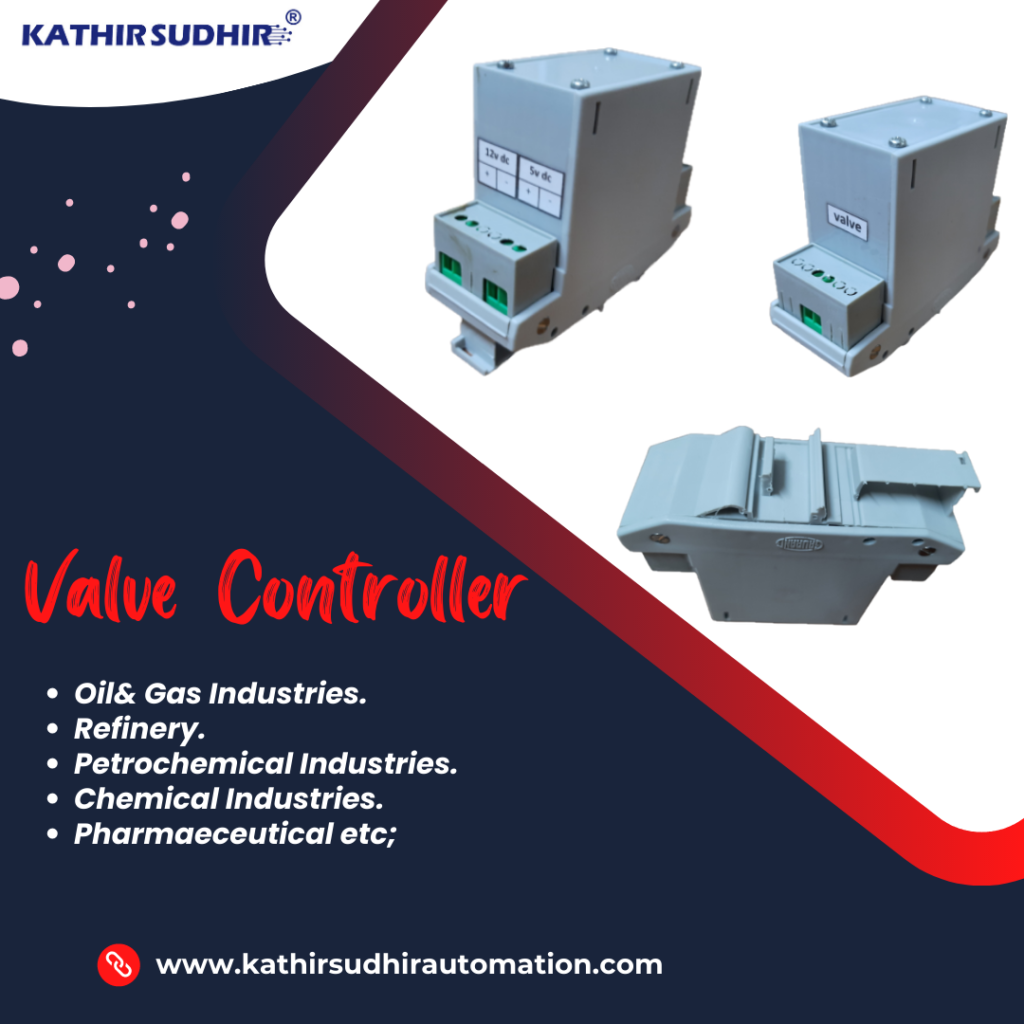Introduction
Mastering Fluid flow is a fundamental aspect of countless industrial processes, from manufacturing and energy production to water treatment and beyond. In these intricate systems, achieving precise control over fluid movement is paramount for efficiency, safety, and product quality. Enter valve controllers – the unsung heroes of modern engineering. In this blog, we’ll delve into the world of valve controllers, exploring their applications, technologies, and the pivotal role they play in shaping various industries.
- The Basics of Valve Controllers: At their core, valve controllers are devices designed to regulate the flow of liquids or gases through a system of pipes, valves, and fittings. They provide the means to open, close, or modulate valves with exceptional precision. Whether it’s maintaining pressure, adjusting flow rates, or ensuring temperature control, valve controllers enable engineers to orchestrate fluid movement with accuracy and finesse.
- Applications Across Industries: Valve controllers find a home in an array of industries. In manufacturing, they help maintain consistent product quality by regulating raw material flows. Energy generation relies on them to optimize processes and ensure power output. Water treatment plants use valve controllers to manage chemicals and water distribution. From oil and gas exploration to pharmaceutical manufacturing, valve controllers are the linchpin of fluid control across sectors.
- Technological Advancements: The evolution of valve controller technology has been remarkable. Traditional pneumatic and hydraulic systems have given way to sophisticated electronic and digital controllers. These modern marvels offer enhanced automation, remote monitoring, and real-time adjustments. Advanced sensors, actuators, and communication protocols empower engineers to manage valve controllers with precision from anywhere in the world.
- Precision and Efficiency: The true beauty of valve controllers lies in their ability to achieve consistent, repeatable results. By minimizing human intervention and responding swiftly to changing conditions, they enhance efficiency and reduce the likelihood of errors. This precision translates to cost savings, improved safety, and increased overall productivity.
- Challenges and Solutions: While valve controllers offer unparalleled benefits, they are not without challenges. Ensuring compatibility with existing systems, dealing with corrosive or abrasive fluids, and addressing potential cybersecurity concerns are among the hurdles engineers may face. However, innovative materials, improved designs, and robust security measures are paving the way for overcoming these obstacles.
- The Future of Valve Controllers: As industries continue to evolve, valve controllers are set to play an even more critical role. The integration of artificial intelligence, machine learning, and data analytics will enable predictive maintenance, optimize processes, and provide valuable insights into fluid dynamics. With sustainability at the forefront, valve controllers will contribute to more efficient resource utilization and reduced environmental impact.

Conclusion
In the intricate dance of fluid flow, valve controllers take center stage, orchestrating movements that drive industries forward. From the intricacies of their design to their far-reaching applications, these devices embody precision, power, and progress. As technology propels us into a future of automation and data-driven insights, valve controllers stand as a testament to human ingenuity and our ongoing quest for mastery over the intricate workings of the world around us.
